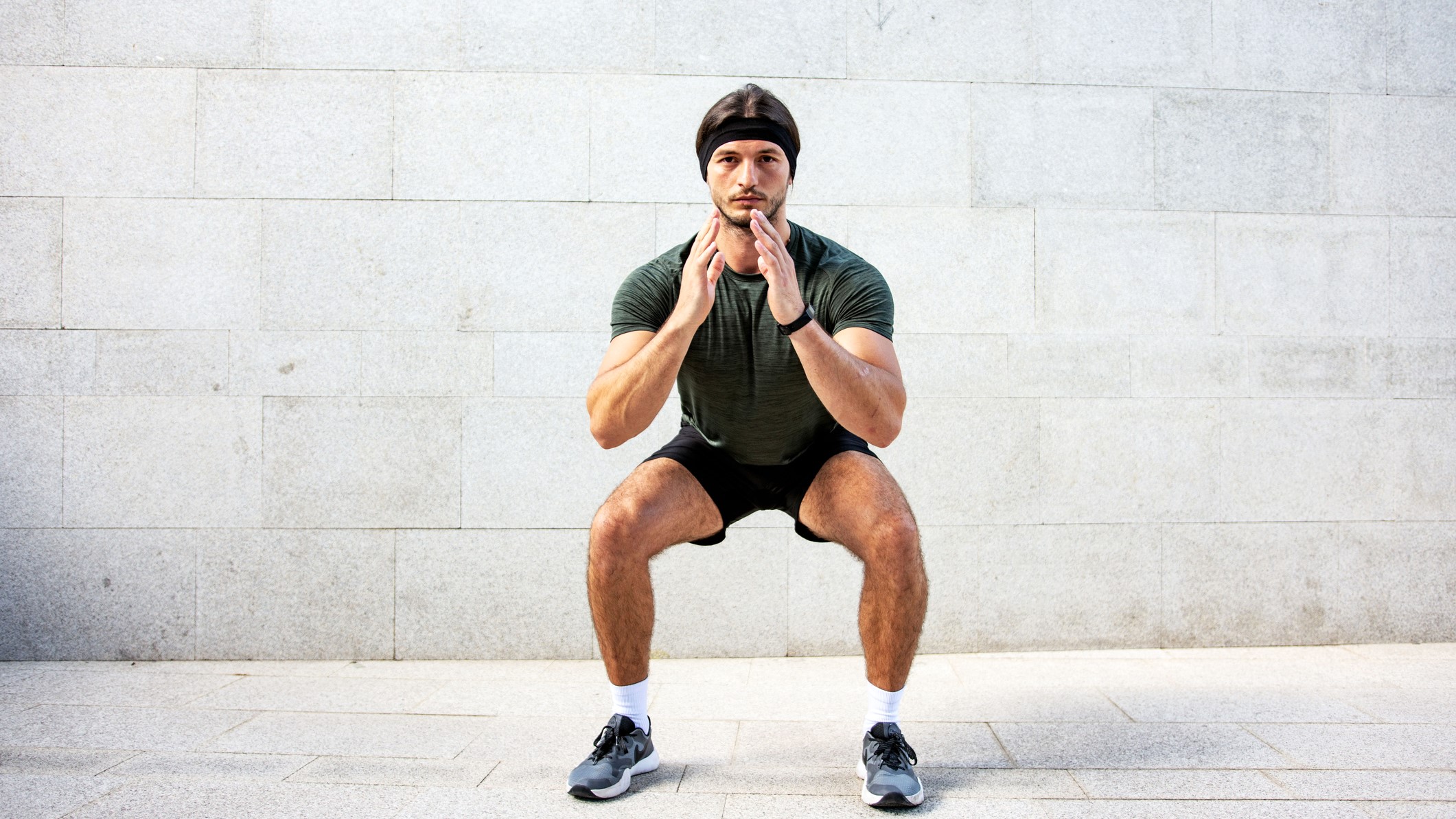
We all know that running is great when it comes to working on your lower body, abs, and cardiovascular fitness, but if you’re injured, or unable to run, what can you do instead? Carve 25 minutes out of your day and get ready to work up a sweat, as we’ve found a workout that’ll get your heart rate up.
The workout, created by personal trainer and home workout expert Matty Fox, can be done from just about anywhere. You’ll get your heart rate up, and the five exercises involved are compound exercises, meaning you’re working multiple muscle groups at the same time. The workout can be done using just your body weight, so put your best kettlebells and best adjustable dumbbells to one side for this one.
As a reminder, if you’re new to exercise or returning to exercise following an injury or pregnancy, this might not be the right workout for you and your body. Always check with a personal trainer or medical professional before adding new exercises to your routine. When trying a new exercise for the first time, it’s always a good idea to ask a personal trainer to check your form to ensure you’re not putting yourself at risk of injury.
What is the workout?

Ready to get started? The workout consists of five different exercises and follows an AMRAP format, where you complete as many rounds as possible in the allotted time. Fox recommends setting a timer for 25 minutes, but you can make the workout as long, or as short as you’d like.
Here are the exercises involved:
Max wall sit hold (max 2 minutes)
To get into a wall sit, stand against a wall, and slide your back down the wall until your thighs are parallel to the ground. Your feet should be stepped out in front of you with knees at a right angle and calves perpendicular to your thighs, your back should be pressed firmly against the wall. Hold this position for as long as possible, stopping after two minutes.
Read what happened when this fitness writer did a 5-minute wall sit evey day for a week here.
30 high knees (each side)
For this exercise, start by standing with your feet slightly wider than hip-width apart. As if you’re jogging on the spot, lift one knee up towards your torso, then the other, keeping your knees high and the pace consistent. If this is too difficult to start with, complete static high knees, lifting one knee at at time, but removing the jogging element.
20 frog squats
For a frog squat, start by standing with your feet slightly wider than hip-width apart and your toes pointing slightly outwards. Squat down, as if you are completing a goblet squat. Place your elbows on your knees and press your hands together, and lean forwards, pushing your hips back into the air. Be careful not to completely lock your knees out in this movement. Lower your hips back down into the squat, then push through the balls of your feet to return to your starting position.
15 jump squats
To do a jump squat, start with your feet slightly wider than hip-width apart. Squat down, then engage your quads, glutes, and hamstrings to explosively jump out of the squat. With your legs fully extended, your feet should be a few inches off the ground. Land on both feet, and immediately squat down into your next rep.
Single-leg hip thrusts
To do a single leg hip thrust, or glute bridge, start by lying on your back with your knees bent, your feet flat on the floor and your arms by your side. Lift one foot off the floor and extend your leg so it is at a 45-degree angle from the floor. You can also bend the knee if this feels better. Squeeze your core, as if you’re trying to suck your belly button into your spine, and push into the foot still onto the floor to raise your hips up off the floor.
Use your posterior chain to drive your hips into the air — think about making a straight line, so your shoulders, hips, and knees form a straight line. Lower your hips back down to your starting position slowly and with control, keeping one leg lifted. Repeat all your reps on the same leg before switching sides.
What are the benefits?
One of the main benefits of this workout is that you don’t need any extra equipment — making it a good one to add to your routine if you’re travelling, or pausing your gym membership for the holidays.
As well as targeting the muscles in the lower body, this workout works on your cardiovascular fitness, as it should raise your heart rate, and keep it raised throughout. There are a number of benefits to adding cardio to your routine, especially when it has a strength element too, as this workout does. Research has found that doing regular cardio can increase your heart health by lowering your cholestrol, lower your blood pressure, and strengthen your immune system.
Doing cardio workouts like this one can also improve your mental health, as like most forms of exercise, it’ll get those happy endorphins flowing — just try to remember that when you’re doing 15 squat jumps!







